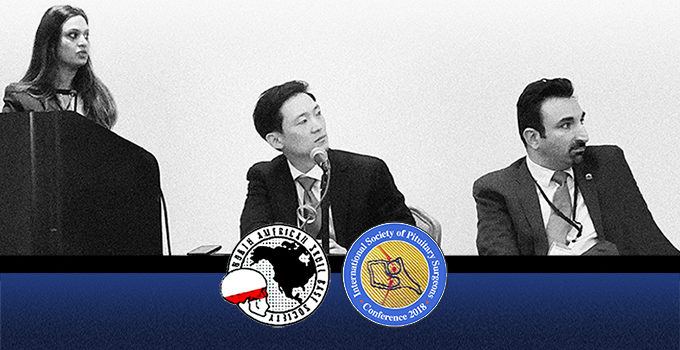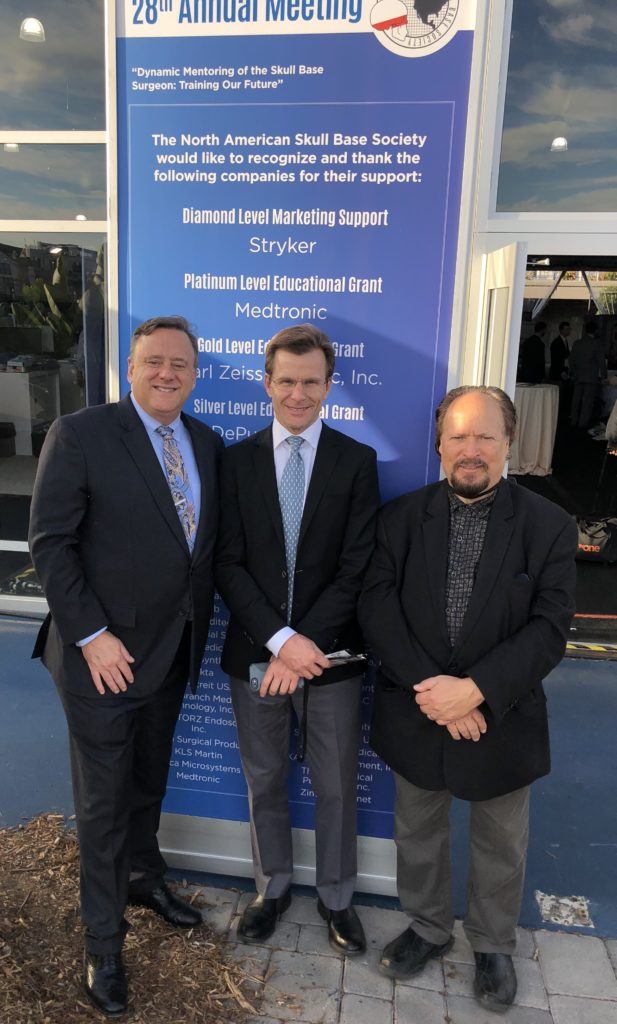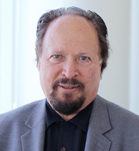

Pituitary Surgeons Come Together
by Howard R. Krauss
North American Skull Base Society (NASBS) & International Society for Pituitary Surgeons (ISPS) Annual Meetings, 2018.
Pituitary surgeons come together in San Diego for an academic double header and the Pacific Neuroscience Institute team is there.

It has been an exciting time for pituitary surgeons specializing in pituitary and skull base care. With back-to-back meetings in San Diego, California, the high-energy conferences were loaded with the latest research in pituitary tumors in the form of great talks, panel discussions and presentation posters.
The North American Skull Base Society’s (NASBS) annual meeting, February 16-18, 2018, led into the International Society for Pituitary Surgeons (ISPS) conference which ran February 18-20, 2018. On the overlapping transition day, both societies collaborated in a lively evening joint scientific session.
Participating Pacific Neuroscience Institute (PNI) physicians and nurses included Daniel F. Kelly, MD, Garni Barkhoudarian, MD, Howard R. Krauss, MD, Chester F. Griffiths, MD, Walavan Sivakumar, MD, Sheri Palejwala, MD, Amy Eisenberg, ARNP and Rachelle Cruz, NP.
Workshops, lectures, presentations and posters at the NASBS meeting provided by PNI physicians and nurses included:
- Centers of Excellence: Is It Time?
- Mini-pterional & Supraorbital Approaches
- When Should the Optic Canal be Decompressed in Patients with Skull Base Meningioma?
- Craniopharyngioma: An 18-year Experience
- Visual Field Outcome Reporting in Neurosurgery: Lessons Learned from a Prospective Multicenter Study in Transphenoidal Surgery for Pituitary Lesions
- Optimal Strategy for Reconstruction after Endoscopic Skull Base Surgery
- Avoiding CSF Leaks and Meningitis
- Evolution of the Graded Repair of Cerebrospinal Fluid Leaks & Skull Base Defects in Endoscopic Endonasal Tumor Surgery: Trends in Repair Failure and Meningitis Rates in 509 Patients
- Extreme Lateral Trans-odontoid (ELTO) Approach to the Ventral Craniocervical Junction (CCJ)
Nelson M. Oyesiku, MD, PhD, FACS, of Emory University, Atlanta, Georgia, chaired ISPS with Pacific Neuroscience Institute’s director, neurosurgeon Daniel F. Kelly, MD, serving as the local California host. The meeting focused on excellence and advances in pituitary care and was attended by a diverse audience of over 60 highly skilled pituitary specialists and endocrinologists including 20 international and 40 U.S. based attendees.
Since the previous ISPS meeting in Liverpool in November 2015 there have been new findings and issues to discuss including enhanced 3D endoscopy, improved tumor removal techniques, improvements in skull base closure and complication avoidance, as well as advances in understanding pituitary tumor genomics and epigenomics, said Dr. Oyesiku. “Moreover, we are working hard to develop pituitary surgery registries that allow better outcomes data across the country. We were delighted to have our ISPS meeting dovetail with the NASBS meeting,” he added.
Particularly exciting for Dr. Kelly and colleagues who attended from PNI was a major focus on Pituitary Centers of Excellence, pituitary tumor registries and technology updates. Dr. Kelly, who is also director of Pacific Pituitary Disorders Center, emphasized strategies, criteria and resources required to create successful centers of excellence such as the one at Pacific Neuroscience Institute. “Based on an informal national survey we believe there are approximately 40 Pituitary Centers of Excellence nationwide, which is a testament to the focus and dedication of these pituitary specialists which includes neurosurgeons, endocrinologists, neuro-ophthalmolgoists, ENT surgeons, radiation oncologists, neuro-oncologists and neuro-pathologists. Over the coming years we hope to continue the momentum on better defining and acknowledging such COEs.”

PNI neurosurgeon and co-director of Pacific Pituitary Disorders Center, Garni Barkhoudarian, MD, attended and presented at both meetings. “These meetings are always great places to connect with colleagues, network and find out about new research and techniques,” he said.
- Presentations at the ISPS meeting provided by PNI physicians and nurses included:
- Pituitary Centers of Excellence Implementation
- Analysis of Methods of Prognostication of Vision Outcomes in Pituitary Tumor Patients
- If Not Cushing’s Disease, Then What is it ?… Pitfalls & Dilemmas
- Evolution of the Graded Repair of Cerebrospinal Fluid Leaks & Skull Base Defects in Endoscopic Endonasal Tumor Surgery: Trends in Repair Failure and Meningitis Rates in 509 Patients
- Rathke’s Cleft Cysts: A 6-year Experience of Surgery Versus Observation
ISPS corporate sponsors included: Hitachi Healthcare, HyperBranch Medical Technology, Inc., KLS Martin, SPIWay, Stryker, Sutter Medical USA, and VisionSense Corp.

Howard R. Krauss, MD, is a Clinical Professor of Ophthalmology and Neurosurgery at Saint John’s Cancer Institute at Providence Saint John’s Health Center, and Director of Ophthalmology at Pacific Eye, Ear & Skull Base Center at Pacific Neuroscience Institute. He is specialized in diagnostic neuro-ophthalmology, including visual field analysis and ocular coherence tomography, as well as strabismus, orbital and anterior skull base surgery.

Daniel F. Kelly, MD, is the Director of the Pacific Neuroscience Institute in Santa Monica, CA. Considered to be one of the top neurosurgeons in the U.S., Dr. Kelly is internationally recognized in the field of minimally invasive keyhole surgery for brain, pituitary and skull base tumors. He continues to focus his efforts on advancing innovative treatments for patients, providing fellowship training in minimally invasive neurosurgery, and patient education and support.
About the Author

Howard R. Krauss
Howard R. Krauss, MD, is a surgical neuro-ophthalmologist, co-founder of Pacific Neuroscience Institute, and Director of Ophthalmology at Pacific Eye, Ear & Skull Base Center at Pacific Neuroscience Institute. He specializes in skull base and orbital diseases and surgery, and pioneered transnasal image-guided endoscopic orbital tumor surgery, a safer, less invasive and more efficacious approach to the removal and management of orbital apex tumors.
Last updated: March 7th, 2018